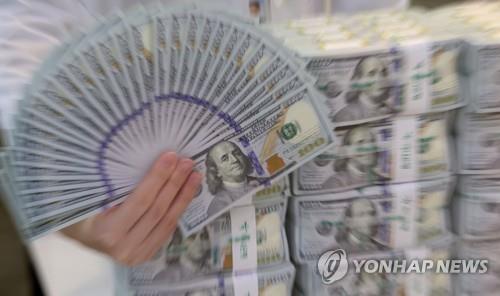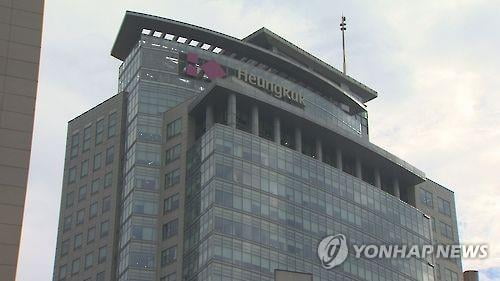PF real estate and credit card / equity contracts of declining securities firms, non-prepayment life insurance
(Seoul Yonhap News) Reporter Seon-hee Yoon, Young-kyung Bae, Sae-rom Chae = Multiple crises occurring simultaneously at home and abroad are hitting the second largest financial sector in Korea, a relatively weak link.
According to the financial investment industry and the bond market on the 6th, bad news such as the Legoland incident, the giant leap of the US central bank (increase of 0.75 percentage points of the interest rate at a time), the default of the Chinese real estate companies and the risks of European investment banks have occurred one after another, according to the financial investment industry and the bond market on the 6th aspect.
As a result, it is difficult to raise funds, causing setbacks in the second largest financial sector in Korea. Market instability has not subsided despite the government’s and Bank of Korea’s liquidity expansion measures, and there are also fears that a financial crisis may reoccur as interest rates rise in major countries outside the country. and the emergence of signs of risk.
◇ Warning lights for the financial crisis in the second financial sector … fear of a shortage of dollars
In the domestic financial sector, signs of crisis have emerged since last month. Securities firms have already entered into emergency management due to the refinancing risk of real estate project financing (PF) and life insurers have also suffered setbacks, such as failure to exercise early repayment (call options) . Credit cards and corporations are also concerned about a setback in issuing still bonds.
Heungkuk Life Insurance recently decided not to redeem USD-denominated hybrid equity securities and DB Life changed the date of the scheduled 30 billion won hybrid equity prepayment event from May 13th to May next year.
In the market, concerns are being raised about the lack of liquidity and dollars from the second financial sector and the deterioration in soundness.
A bond manager at a securities firm said: “The market has spread to suspicion of a lack of dollar liquidity.” “Credit default swap (CDS) premiums have risen a lot recently and companies’ PF investments are returning to maturity, the financial situation will inevitably decline,” he said.
A bond market official said: “Overseas refinancing is the worst situation due to high interest rates and shrinking demand and has delayed the repayment period.” For the issuance of dollar bonds, the interest rate can exceed 10% considering the increase in the exchange rate.
Standard & Poor’s (S&P) international credit rating agency predicted that the financing conditions of domestic insurance companies would deteriorate.
Chang-yoon Lee, global director of S&P, said: “Investment sentiment has contracted due to rising interest rates and not exercising call options.
Hanwha Life Insurance (A, stable), Hanwha General Insurance (A, stable) and Hyundai Marine & Fire Insurance (A-, stable) have hybrid equity securities with the first call option exercise date scheduled for next year.
S&P predicts that “if these insurers only pay back without refinancing, their capital capacity may decline and their ability to respond to market volatility may weaken.”
◇ European and Chinese unrest … Concerns about the global financial crisis
The situation outside the country is even worse. A growing number of Chinese real estate companies are in default due to the dollar bond crisis. On the 1st, Xuhui (CIFI), the 15th Chinese real estate developer, announced that it would postpone repayment of foreign debts accrued last month.
Late last month, Nokji Group (Rudy Greenland), a real estate development firm, announced that it would not be able to meet its obligation to redeem unpaid dollar-denominated bonds worth $ 362 million ( about 515.3 billion won) maturing on 13th of this month. Some observers predict that Chinese real estate companies will have to repay at least $ 229 billion (about 414 trillion won) of domestic and foreign debt within the next year.
In Europe, not only Credit Suisse of Switzerland, a global investment bank, but also large French national banks are raising concerns about a crisis among global investment banks (IBs). An IB industry official pointed out: “Europe is receiving tones of crisis warnings, such as investment banking risks being raised in the UK, France, Germany, Italy and Spain.”

◇ “It is not at the moment to discuss if there is a shortage of dollars or a crisis … Watch out for the market at the end of the year”
However, experts pointed out that market conditions until recently were not sufficient to discuss the risk of a lack of dollar liquidity or the realization of a financial crisis.
A financial sector official said: “Even though the dollar has been used to defend the exchange rate, relative to other countries, it is not at the level of concern about foreign exchange reserves.”
Korea’s foreign exchange reserves stood at $ 414.0 billion at the end of last month, down $ 2.76 billion from the end of September ($ 416.7 billion). With the easing of the dollar, foreign exchange reserves declined for the third consecutive month since August, but by September it was in ninth place in the world.
Another official said: “Questions have recently been raised about the soundness of some financial companies, such as insurance companies.
A financial investment industry official said: “At the end of the year, borrowing from banks will become more difficult.”
Although the government is implementing various measures such as liquidity support of more than 50 trillion won and easing of prudential regulations, the financing market has not yet been resolved.
The interest rate on commercial paper (CP, 91-day notes) closed at 4.88% per annum on the 4th, the highest since January 2009 (5.00%) in 13 years and 9 months.
Large corporations are turning to CP or private placements instead of publicly available corporate bonds. SK, the second largest in the business world, plans to issue a long-term CP worth 200 billion won on the 10th. Large companies such as Samsung Heavy Industries, Jin Air, Korea Seven, Lotte GRS, SK Rent-a- Car and E-Mart 24 recently issued private placement bonds with an interest rate of 6-7% per annum.
Korea Land and Housing Corporation and Korea Investment & Securities also stopped buying dollar bonds as Korean Paper’s trading in financial markets outside the country was closed. Hana Bank and Shinhan Bank are preparing to issue Australian dollar bonds (kangaroo bonds), which have shown a relatively stable flow, and some are turning their gaze to the Japanese market.
[email protected], [email protected], [email protected]
/ yunhap news


